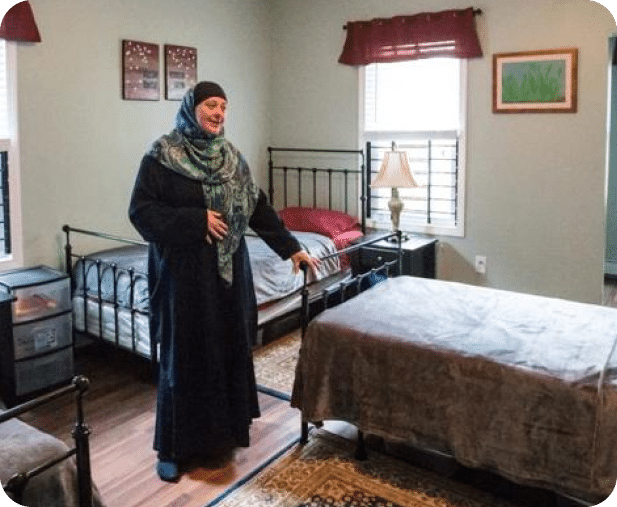Providing a Safe Home:
The Rewards of Supporting Transitional Housing This Dhul Hijjah
“Whoever relieves a believer’s hardship from the hardships of this world, Allah will relieve him of hardship on the Day of Judgment.”
— Prophet Muhammad ﷺ (Muslim)
There are people in our communities tonight who do not know where they will sleep. Some are mothers with young children. Others are survivors of domestic abuse trying to rebuild. The hardship of not having shelter touches every part of a person’s life, from their health to their faith, from their safety to their sense of dignity.
Islam teaches us to respond to that hardship and giving during this sacred time is a way to seek Allah’s reward while easing the burden on someone else.
Where the Work Began
In 2008, ICNA Relief opened its first transitional home. It was created out of necessity. Muslim women in crisis were showing up at general shelters that could not meet their needs. Some had left abusive relationships, others were facing sudden homelessness and few felt safe where they were placed.

The homes offered something different. Residents received case management in an environment that respected their values. The goal wasn’t just to provide a bed, it was to help women regain stability, rebuild confidence, and move forward with support.
This early model showed what was possible when dignity was prioritized. Over time, the program expanded to meet rising needs.
Where It Stands Today
ICNA Relief now runs 24 transitional housing facilities across the country. Some support women and children, others serve survivors of domestic violence and a new program supports men coming home from incarceration.
Each home is different, but the principle is the same: meet people at a difficult point in their lives and help them take the next step. This could mean applying for long-term housing, attending counseling, or reconnecting with loved ones.
Since its founding, the program has supported more than 3,000 individuals. Some stay for weeks. Others stay longer. What they find is a place to begin again, with structure and support that reflects their needs.
Why Dhul Hijjah Is the Time to Act
The first ten days of Dhul Hijjah are not ordinary. The Prophet ﷺ described them as the best days for good deeds. Charity given during this time is the most beloved in the sight of Allah.
It doesn’t take much to make a difference, to turn intention into action. A few nights of shelter can protect a woman from returning to an unsafe environment. A month of case management can help a family avoid eviction. A well-timed donation can keep a home running for others still waiting to be placed.
How to Support This Work
Donate during the first ten days of Dhul Hijjah
Give on the Day of Arafah for maximum reward
Support ICNA Relief’s transitional housing programs with a one-time or recurring gift
A Shelter That Changes Direction
A transitional home is not the end of the journey, but for many who arrive, it is the first time in months they have felt safe. That safety doesn’t happen by accident, it happens because someone chose to give and because a community responded.
May your reward-filled Sadaqah continue to provide protection for others.
Join our mission. Volunteer, Donate, Advocate. Get Started Today.
Email: office@icnarelief.org
Call Anytime: 866-354-0102
